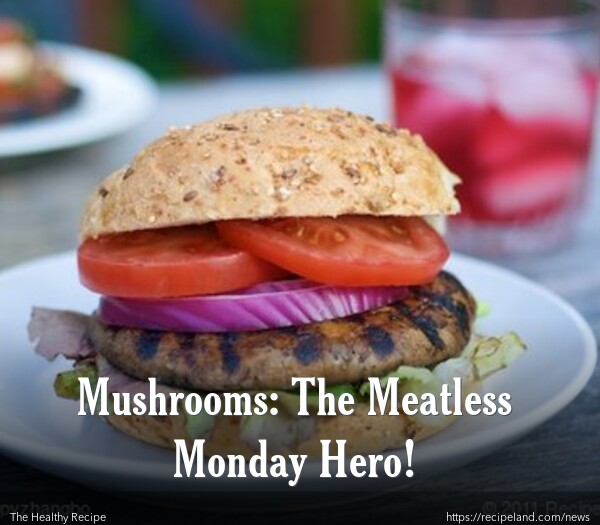Mushrooms are a delicious and healthy staple of many cuisines around the world. These days you can find many varieties of mushrooms right in your own produce department! Mushrooms are often sold fresh or dehydrated.
Most grocery stores sell cultivated mushrooms, grown by mushroom farmers. White button mushrooms are the most popular variety and make up 90 percent of the mushrooms eaten in the United States. Crimini mushrooms, portabella mushrooms, and shiitake mushrooms are also commonly seen in produce departments. Depending on where you live, you might also see fresh maitake mushrooms, enoki mushrooms, oyster mushrooms and beech mushrooms. Dehydrated chanterelle mushrooms are also commonly available.
Some people enjoy gathering wild mushrooms. While this can be a delicious way to find morels, chanterelles, and other wild mushrooms, it can also be very dangerous as many varieties of poisonous mushrooms grow in the wild. These poisonous mushrooms are often confused with edible varieties. Do not eat wild mushrooms unless they have been approved by a trained mushroom expert or are sold by a trusted produce vendor.
Great For Every Diet
Meaty, robust, filling mushrooms are the perfect addition to any diet. Mushrooms are naturally gluten-free and make an excellent no-fuss replacement for bread in savory gluten-free sandwiches or pizzas. They are fat-free, cholesterol-free, low in calories, and contain a small amount of sodium.
Mushrooms can be enjoyed by those on a calorie-restricted diet, low-sodium-diet, low-cholesterol diet, or diet to control blood-glucose levels. One serving of mushrooms is equal to about five medium-sized mushrooms. This serving contains just 20 calories and 3 grams of protein.
Vitamins and Minerals Breakdown
Mushrooms are an excellent source of B vitamins. Riboflavin, niacin, and pantothenic acid are all found in mushrooms. These important B vitamins help the body to digest protein, fat, and carbohydrates as well as supporting the nervous system.
Mushrooms provide beta-glucans to stimulate the immune system. They are full of vital minerals, such as selenium, ergothioneine, copper, and potassium to protect the body’s cells, support the nervous system, and keep the body working properly.
It is important to note that mushrooms are a grain-free, vegetarian source of selenium, which mostly comes from animal products and grains.
Why You Need Vitamin D
Your body needs vitamin D to develop strong and healthy bones. Recent studies have shown that those who have higher levels of vitamin D are at a lower risk for heart disease, breast cancer, prostate cancer, colon cancer, obesity, and depression. Mushrooms are a good source of vitamin D.
Vegetarian Source of B12
Scientists are turning to fresh mushrooms as a valuable source of B12 for vegetarians. In the past, animal foods were deemed to be the only source of B12. Our bodies need B12 to produce red blood cells, DNA, and nerves. B12 deficiency can cause memory loss, depression, delusions, loss of smell, and loss of taste. We cannot produce B12 on our own and must absorb it through the foods we eat.
Breast Cancer
A study reported in theJournal of Nutritionreports that the conjugated linoleic acid (CLA) in mushrooms is able to stop breast cancer cells from producing estrogen. These cells must have estrogen to grow, so the CLA in mushrooms can stop the growth of breast cancer tumors. Researchers are also examining how mushrooms can prevent the growth or risks of other types of cancer.
Immune Booster
The phytonutrients in mushrooms can stimulate white blood cell function and change the way they work. They control the activity of white blood cells to best meet the needs of your body. Proper white blood cell function is key to a healthy and well-balanced immune system.
Healthy Heart
Mushroom extracts are able to stop certain immune cells from binding to the lining of the aorta. This allows blood to flow properly through the aorta and protects the aorta from damage. The B vitamins in mushrooms are also necessary for heart health. A key risk factor for cardiovascular disease is high levels of the amino acid homocysteine. B vitamin deficiencies can put you at a higher risk for having higher than normal levels of homocysteine.
Healthy Weight
Mushrooms are a low-calorie food that fill you up. Replacing meat with mushrooms can help you feel fuller and eat fewer calories and fat.
Storage Matters
Researchers have found that mushrooms need to be stored at the proper temperature to keep their vital nutrients. In a study published in theJournal of Food Science, researchers reported that mushrooms that are kept at room temperature lose their phytonutrients and become discolored faster than mushrooms kept in the refrigerator.
Selecting and Storing
Mushrooms should feel plump and firm. They should have uniform color and appear clean. Do not buy mushrooms that look damp or slimy. Wrap mushrooms in a damp cloth and place them in a closed paper bag in the refrigerator. Try to spread mushrooms out in a single layer. You do not want them to sit in a clump, as this will make them mold faster and become soggy or slimy. Mushrooms can be kept in the fridge for six days.
Store dehydrated mushrooms in an airtight container in the refrigerator or freezer for up to six months.
Preparing
Clean mushrooms with a damp paper towel just before using. Slice mushrooms or add them whole to your recipe. If your recipe calls for using the caps only, save the stems to make a flavorful stock or soup. Mushrooms caps can be stuffed or sliced and added to omelettes or sauces.
Recipes:
Mushrooms and Pasta:
Absolutely Fab Mushroom Lasagna
Skillet Macaroni and Cheese with Broccoli and Mushrooms
Cheesy Farfalle with Asparagus, Mushrooms and Toasted Walnuts
Better Than Macaroni and Cheese
Cheesy Spinach and Mushroom Lasagna
Mushrooms and Eggs:
Crustless Spinach and Mushroom Quiche
Mushroom, Spinach and Cheese Omelette
Mushroom Stir Fry:
Bok Choy, Shiitake Mushroom Stir Fry
Fried Rice with Broccoli and Egg
Sichuan Broccoli, Tofu, and Carrot Stir Fry
Sour-Spicy Tofu, Green Beans, and Mushrooms Stir Fry
Stuffed Mushrooms:
Fabulous Stuffed Portobello Mushrooms
Mediterranean Stuffed Mushrooms
Cashews, Lentils, and Brown Rice Stuffed Portobello Mushrooms
Cheese and Spinach Stuffed Portobellos
Spinach and Artichoke Stuffed Portabello Mushrooms
Mushroom Sandwiches:
Browned Mushroom Grilled Cheese Sandwich
Philly Cheese Steak-less Sandwich
Mixed Mushroom and Goat Cheese Panini
Grilled Portobello with Mediterranean Salad Sandwiches
Soups:
Veggie Jiao Zi (Chinese Dumpling) Soup
Salads:
Mushroom and Mixed Green Salad
Cherry Tomato, Baby Spinach and Mushroom Salad in Cheese Baskets
Marinated Mushroom, Black Bean Couscous Salad With Cheddar
Blackened Portobello Mushroom Salad
Chinese Veggie Salad with Soy Dressing
Mushroom Pizza:
Mushroom, Sun-Dried Tomato and Olive Pizza
Caramelized Onion, Mushroom and Garlic Oil Flatbread
Artichoke Hearts, Roasted Bell Pepper and Fresh Mozzarella Pizza










Comments